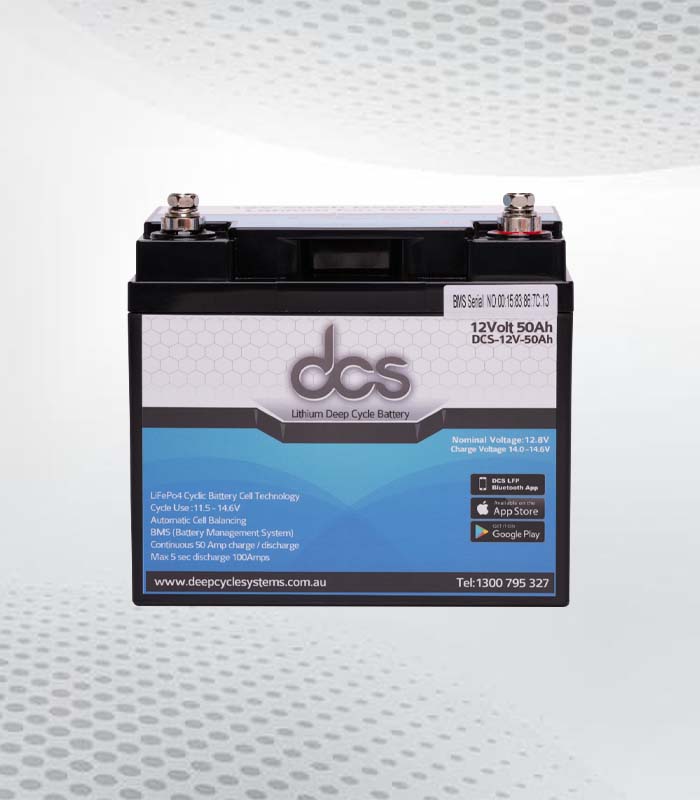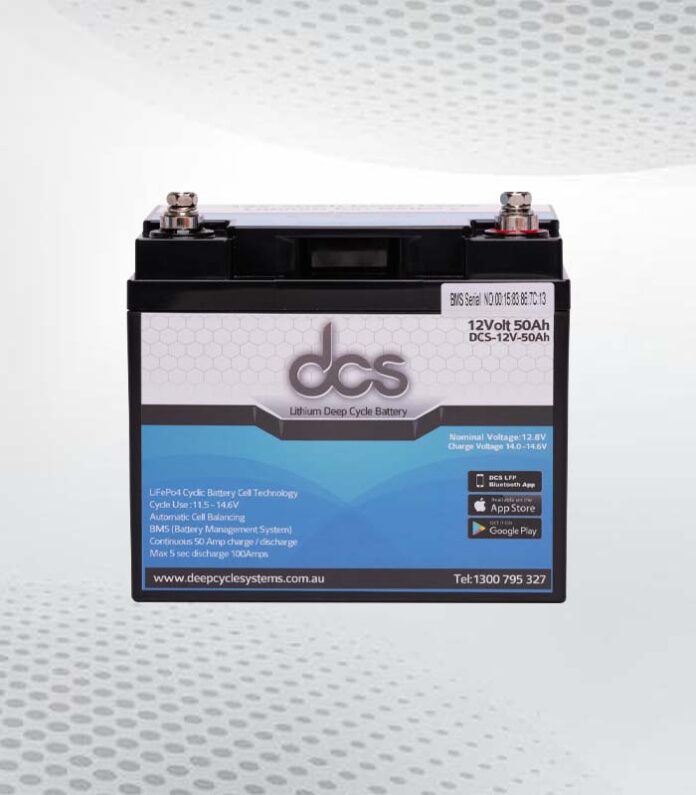Batteries are essential to our daily lives, powering everything from our cars to our leisure activities. And one particular battery, the 180ah, packs a punch regarding power and performance. But like any other battery, it requires proper care and maintenance, particularly cleaning, to perform optimally. In this comprehensive guide, we will walk you through cleaning your 180ah battery, recognizing when it’s time for a replacement, and avoiding common battery cleaning mistakes. Let’s get started.
Understanding Your 180 Ah Battery
Imagine a powerhouse at your disposal that can consistently deliver 180 amps for an entire hour or efficiently run at 18 amps for a whopping 10 hours. That’s what the 180 Ah battery brings to the table. It’s not just a battery; it’s a workhorse, often chosen to energize leisure applications like motor homes and caravans.
Its superb power-to-weight ratio and capability to sustain heavy load applications for extended periods make it a preferred choice. However, the crux of harnessing its full potential lies in regular maintenance.
Much like you take your car for regular tune-ups, your 180ah battery needs some TLC to continue performing at its best. So, let’s dive deeper and understand how to care for this power-packed tool.
Necessary Cleaning Tools for Your Battery
It’s time to roll up your sleeves and embark on the cleaning journey of your 180-ah battery. But hold up! We can only start by ensuring we have the right tools at hand. It’s like going into battle without your armor.
You’ll need a handy wrench or socket to unhinge the battery gently. Remember, there is no brute force here. Next, arm yourself with a toothbrush or a small wire brush, the perfect weapon against stubborn grime and corrosion.
 Baking soda will be your ally to neutralize any acidic residues. The trusty distilled water, not just any water, will serve to rinse off the cleaning aftermath. For that added layer of protection post-cleanup, have petroleum jelly ready to coat the terminals.
Baking soda will be your ally to neutralize any acidic residues. The trusty distilled water, not just any water, will serve to rinse off the cleaning aftermath. For that added layer of protection post-cleanup, have petroleum jelly ready to coat the terminals.
And, of course, your safety is paramount. A sturdy pair of rubber gloves is essential to shield your hands. Now that we have our cleaning arsenal ready let’s march ahead.
Steps to Clean Your 180ah Battery
Ready to start the cleaning process? Here we go! First, ensure the 180ah Battery is disconnected from any devices to prevent any electrical mishaps. Then, create your cleaning solution: one tablespoon of baking soda in a cup of distilled water. It’s simple but extremely effective. Grab your brush and dip it in the solution.
Add this mixture to the battery terminals and gently scrub off the built-up corrosion and grime. Rinse thoroughly with more distilled water. Remember, cleanliness is key here. Dry everything off with a clean cloth, ensuring there’s no moisture left behind.
Once everything is dry, coat the terminals with a thin layer of petroleum jelly. This will act as a barrier against future corrosion. Lastly, reconnect the battery, ensuring those terminals are secured just right. Not too loose, not too tight. And voila! Your 180ah battery is clean, protected, and ready for peak performance.
Safety Precautions When Cleaning Your Battery
Handling a 180ah battery, or any battery for that matter, demands utmost caution. First, shield yourself with rubber gloves to protect your hands from potential acid burns. Safety goggles or eyewear are crucial to safeguard your eyes from accidental splashes.
Remember to keep a safe distance when it’s time to charge, test, or jump your battery; do not lean over. Just as you wouldn’t light a matchstick near a gas stove, refrain from smoking around batteries. They emit hydrogen gas, which is highly flammable.
Ensure that your workspace is well-ventilated to allow any trapped gases to escape, minimizing the risk of accidental ignition. These precautions can prevent injuries and keep your cleaning routine safe and effective. Always remember: safety first, always!
Regular Battery Maintenance Tips
Keeping your 180ah battery in top-notch condition requires consistent care and attention. Keep an eye out for any corrosion on the terminals – a little cleaning can go a long way in preventing performance issues. Ensuring that terminal connections are secure but not overly tight can protect the battery post from damage.
Also, it’s essential to maintain a consistent water level in your battery – remember, we’re talking distilled water, not tap! If you spot any cracks or leaks in the battery casing, it’s a warning signal that your battery may need extra TLC or a replacement.
Charging your battery regularly can help avoid deep discharge, which can harm your battery’s health. Regular maintenance is the key to prolonging the life of your 180ah battery.
Recognizing When to Replace Your 180 Amp Battery
Just like any piece of technology, batteries have an expiration date too. That mighty 180 Amp Battery isn’t an exception. While regular cleaning and maintenance can significantly extend its life, there will come a time when it’s ready to retire. One tell-tale sign is the battery’s inability to hold its charge.
It’s like that smartphone that goes from 100% to 20% in the blink of an eye – that’s your battery waving the white flag. Swelling, unusual heat, or a strange, sulphurous smell can also be signs of a 180-ah battery on its last legs.
Remember, these are just indicators, not definitive proof. So, don’t jump the gun and dispose of your battery prematurely. Check with a professional before making the final call. The key here is to stay observant and proactive – you wouldn’t want a dead battery to spoil your next road trip or camping adventure!
Avoiding Common Battery Cleaning Mistakes
One misstep in cleaning can set your 180ah battery back. Tap water is a no-go for battery cleaning. Why? Its mineral content can become a catalyst for corrosion. Instead, distilled water is the way to go. Terminal connections that are too tight can also spell trouble, leading to potential cracks in the battery post.
So, secure them just right – not too loose, not overly tight. And remember, your 180ah battery despises a zero energy state. Allowing it to run flat regularly could significantly reduce its lifespan. Instead, keeping it charged, not overcharged, can help maintain its health.
These are seemingly minor missteps, but they can significantly impact your battery’s performance and longevity. So, next time you clean your 180ah battery, be wary of these common mistakes and navigate to a well-maintained power source.
Common 180ah Leisure Battery and Solutions
Like any powerful tool, the 180ah Leisure Battery its share of potential issues. Acid stratification, a condition where the acid concentration in the battery becomes uneven, can lead to premature battery failure. Regular charging, especially after a deep discharge, can help counteract this problem.
Then we have sulfation, a common battery foe that occurs when lead sulphate crystals form on the battery plates, impeding its performance. To fight sulfation, consider using a battery desulfator. It emits electrical pulses to dissolve the pesky crystals, bringing your battery back to optimal functionality.
Lastly, deep discharge, a scenario where the battery’s charge drops to a dangerously low level, can inflict serious harm. The remedy? Don’t let your battery’s charge drop too low. Frequent changes can keep deep discharge at bay, preserving the health and performance of your 180ah Leisure Battery.
Troubleshooting these issues can be as simple as tweaking your battery care routine. So, keep an eye on these potential problems, and your battery will reward you with long-lasting, powerful performance.
Maximizing Your 180ah Battery’s Lifespan
Are you aiming to squeeze every ounce of power from your 180ah battery? We’ve got your back! Ensuring the proper charging of your battery is an essential step towards a long and efficient life. Frequent, not deep, discharges should be your goal – it’s like keeping your battery on a balanced diet. Monitoring the water level within your battery should also be part of your routine.
However, distilled water is the only contestant in this race; tap water doesn’t stand a chance. Maintaining your battery’s cleanliness isn’t just about the looks; it directly impacts its performance. Frequent dust-offs and vigilant corrosion control can keep your battery running smoothly.
Consider these steps as your battery’s health check-ups to outlive its expected lifespan. Remember, a well-taken-care-of battery is a high-performing one. Your 180-ah battery can be a long-lasting powerhouse with a little attention and care from your end. So, gear up, show your battery some love, and watch it return the favour with outstanding performance!
Maximizing Battery Life: Best Practices
To keep your 180ah battery running at its peak:
- Consider the environment in which it resides.
- Aim for a cool, dry space that isn’t prone to extreme temperature fluctuations, which can negatively impact your battery’s lifespan.
- Remember to handle your battery carefully to prevent any physical damage affecting its performance.
These small but crucial adjustments can significantly enhance the overall life expectancy of your 180ah battery. Storing and handling it carefully, combined with the regular maintenance and cleaning techniques mentioned earlier, is the perfect recipe for long-lasting battery performance.
FAQs
Q: What should I use to clean my 180ah battery?
A: Arm yourself with a wrench or socket set, a toothbrush or small wire brush, baking soda, distilled water, and petroleum jelly. Remember the rubber gloves for safety.
Q: Can I use tap water to clean my battery?
A: No, use only distilled water to clean your battery. Tap water contains minerals that can accelerate corrosion.
Q: How often should I clean my 180ah battery?
A: Frequency depends on usage and conditions. However, a good rule of thumb is to inspect your battery monthly for corrosion or grime build-up and clean it as needed.
Q: How can I tell if my battery needs replacing?
A: Symptoms of a dying battery include the inability to hold a charge, swelling, unusual heat, or a strange, sulphurous smell. If you observe these signs, consult with a professional.
Conclusion
In conclusion, maintaining your 180ah battery isn’t just about cleaning; it’s about ensuring its overall health for optimum performance. The first steps are understanding your battery’s specifications, equipping yourself with the right cleaning tools, and taking necessary safety precautions. Regular maintenance, including inspection for corrosion and maintaining a consistent water level, can significantly prolong the battery life. Being aware of potential issues like acid stratification, sulfation, and deep discharge and knowing how to combat them can help avoid premature battery failure. Lastly, knowing when to replace your battery and avoiding common cleaning mistakes can save you from unwanted hassles.
| Other Good Articles to Read |
| Blogs-Nation |
| Blogs-Peoples |
| Bryan Smith Blogs |
| intellect blogs |
| the fault in our blogs |
| blogs eu |
| oz forums |
| recruitment blogs |
| zet blogs |
| id blogs |
| Blog Studio legale |
| blogs map |

